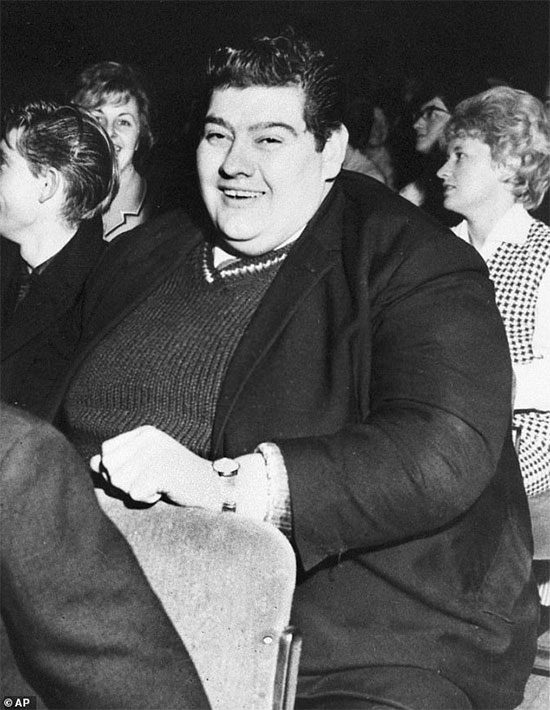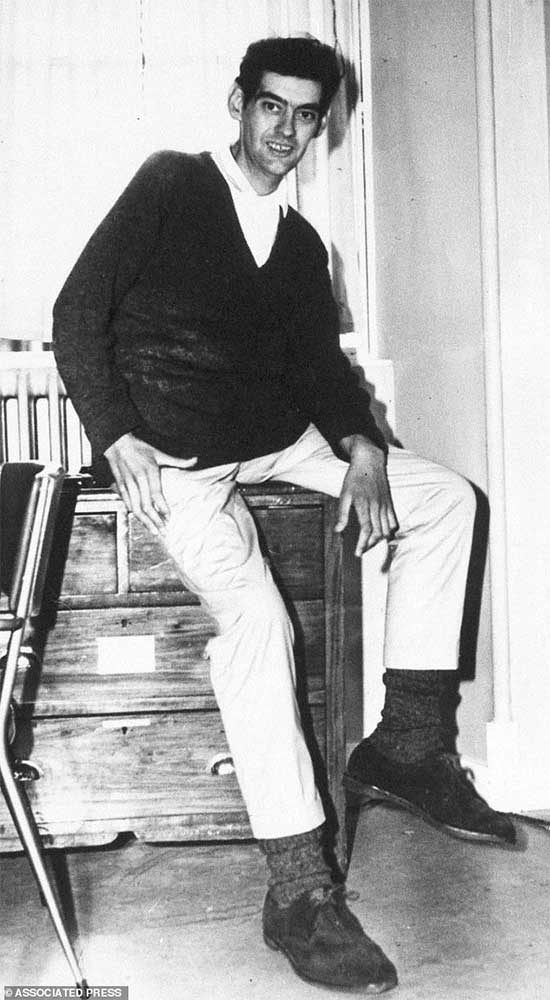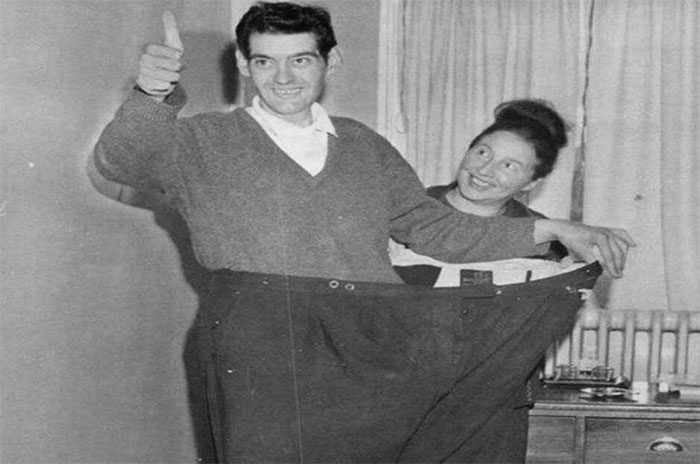The extraordinary journey of this man is still recounted today as a unique miracle, astonishing the entire world.
More than six decades ago, a man from Scotland captured global attention when he publicly undertook a continuous fast for 382 days to lose weight. What seemed like a joke turned out to be entirely true. To this day, no one has surpassed that record.
According to History Defined, in June 1965, Angus Barbieri (then 27 years old) – who suffered from obesity – decided to try to overcome his eating addiction to lose weight. Surprisingly, Angus Barbieri’s journey shattered all records, transcending physical and mental boundaries, challenging common beliefs, and leaving both scientists and the public utterly astonished.
Life Before Weight Loss
Very little information exists about Barbieri’s life before his weight loss journey. He was born in Tayport, Scotland, in 1939 and seemed to have lived a normal life with minor risks due to his slightly “overweight” body.
As a young man, before starting his fast, Barbieri worked regularly at his father’s fish and chip shop. However, by the age of 27, Barbieri’s weight problem became evident, as he weighed up to 206 kg.

Barbieri’s weight reached 206 kg at one point.
In June 1965, Barbieri went to the Royal Dundee Hospital in Scotland to seek advice from medical professionals and began a short-term fasting journey to bring his weight down to a normal level, ensuring a better quality of life.
Barbieri’s intention was to “fast” to lose weight. Of course, this was not a scientifically approved method for weight loss, but due to Barbieri’s strong determination, the doctors agreed to monitor his health during this challenging period.
Thus, Barbieri himself did not expect to be able to fast for such an extended period.
The Weight Loss Journey
In Barbieri’s specific fasting plan, he was not allowed to consume solid food, only permitted to take in electrolytes, vitamins, some enzymes for essential amino acids, and finally, specific liquids like black coffee, tea, and soda water.
Barbieri’s caloric intake was nearly zero throughout the entire fasting period – essentially a “diet plan” interspersed with intermittent fasting.
During the fasting period, Barbieri lost weight rapidly – averaging nearly 0.5 kg each day. Each month, he lost about 10 kg. As months passed, Barbieri remained steadfast in his fasting, and the numbers on the scale continued to decline.

Barbieri’s weight loss transformation astonished many.
During his treatment, he was allowed to come and go freely at Maryfield Hospital for doctors to monitor his diet and health condition. Barbieri had to quit his job at his father’s fish and chip shop on Nelson Street to avoid disrupting his strict diet.
Astonishing Results
Barbieri’s ultimate goal was to reach a weight of 82 kg, at which point he planned to conclude his weight loss journey. After an extraordinary and arduous 382 days, on July 11, 1966, Barbieri finally succeeded.
He ended his fast one morning in July with a small amount of bread, butter, and a boiled egg.
He told the crowd of reporters in the room: “Everything is fine. I feel a bit full, but I absolutely enjoy this feeling.”
Barbieri’s transformation made it hard for people to recognize him when looking at previous photos. Stepping into an old pair of pants, Barbieri astounded everyone by fitting into one pant leg.
His story quickly became a global topic of discussion, with newspapers as far away as America reporting on his remarkable journey.
Experts at the University of Dundee were so intrigued by Barbieri’s weight loss process that they conducted a study to examine the effects of long-term fasting on the body.
Barbieri’s doctors documented the entire weight loss process in a report published in 1973.
Skepticism
Angus Barbieri’s weight loss journey faced much skepticism and controversy, as it exceeded what most people thought was possible.
Many asked the same question: how could someone fast for such an extended period?
Many believed that fasting for a year could not lead to a completely healthy body, regardless of the significant weight loss.
At that time, records indicated five cases of death due to attempts at similar prolonged fasting under hospital supervision.
Despite all doubts from family, the press, and even some doctors, Barbieri maintained that his method was both rigorous and honest.
Barbieri’s Legacy
To this day, Angus Barbieri’s record of 382 days without food remains unbroken – and it may never be repeated.
Barbieri was quickly entered into the Guinness World Records in 1971 for the longest recognized fasting period.
After a remarkably swift recovery, Barbieri continued to live a fulfilling life, raising two sons before moving to Warwick.
Barbieri passed away in September 1990. He still holds the world record for the longest fasting period without solid food. However, since then, the Guinness World Records organization has not officially recognized fasting-related records due to concerns that it may encourage unsafe behaviors that could harm human health.




















































